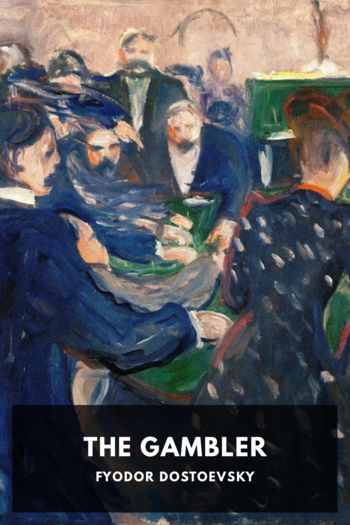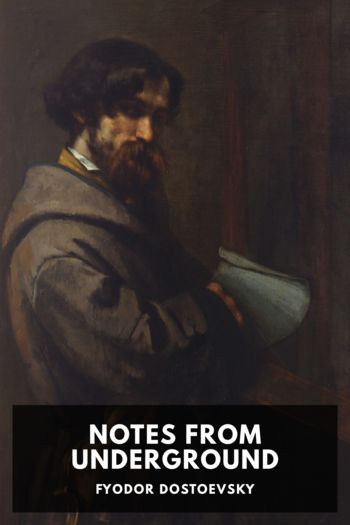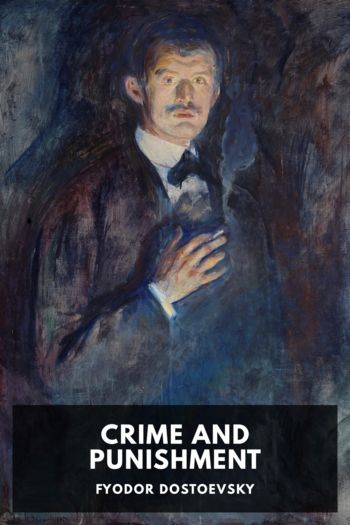The Brothers Karamazov by Fyodor Dostoevsky (i love reading books .txt) 📕

- Author: Fyodor Dostoevsky
Book online «The Brothers Karamazov by Fyodor Dostoevsky (i love reading books .txt) 📕». Author Fyodor Dostoevsky
No signs from heaven come today
To add to what the heart doth say.
There was nothing left but faith in what the heart doth say. It is true there were many miracles in those days. There were saints who performed miraculous cures; some holy people, according to their biographies, were visited by the Queen of Heaven herself. But the devil did not slumber, and doubts were already arising among men of the truth of these miracles. And just then there appeared in the north of Germany a terrible new heresy. “A huge star like to a torch” (that is, to a church) “fell on the sources of the waters and they became bitter.” These heretics began blasphemously denying miracles. But those who remained faithful were all the more ardent in their faith. The tears of humanity rose up to Him as before, awaited His coming, loved Him, hoped for Him, yearned to suffer and die for Him as before. And so many ages mankind had prayed with faith and fervor, “O Lord our God, hasten Thy coming,” so many ages called upon Him, that in His infinite mercy He deigned to come down to His servants. Before that day He had come down, He had visited some holy men, martyrs and hermits, as is written in their lives. Among us, Tyutchev, with absolute faith in the truth of his words, bore witness that
Bearing the Cross, in slavish dress,
Weary and worn, the Heavenly King
Our mother, Russia, came to bless,
And through our land went wandering.
And that certainly was so, I assure you.
“And behold, He deigned to appear for a moment to the people, to the tortured, suffering people, sunk in iniquity, but loving Him like children. My story is laid in Spain, in Seville, in the most terrible time of the Inquisition, when fires were lighted every day to the glory of God, and ‘in the splendid auto de fé the wicked heretics were burnt.’ Oh, of course, this was not the coming in which He will appear according to His promise at the end of time in all His heavenly glory, and which will be sudden ‘as lightning flashing from east to west.’ No, He visited His children only for a moment, and there where the flames were crackling round the heretics. In His infinite mercy He came once more among men in that human shape in which He walked among men for three years fifteen centuries ago. He came down to the ‘hot pavements’ of the southern town in which on the day before almost a hundred heretics had, ad majorem gloriam Dei, been burnt by the cardinal, the Grand Inquisitor, in a magnificent auto de fé, in the presence of the king, the court, the knights, the cardinals, the most charming ladies of the court, and the whole population of Seville.
“He came softly, unobserved, and yet, strange to say, everyone recognized Him. That might be one of the best passages in the poem. I mean, why they recognized Him. The people are irresistibly drawn to Him, they surround Him, they flock about Him, follow Him. He moves silently in their midst with a gentle smile of infinite compassion. The sun of love burns in His heart, light and power shine from His eyes, and their radiance, shed on the people, stirs their hearts with responsive love. He holds out His hands to them, blesses them, and a healing virtue comes from contact with Him, even with His garments. An old man in the crowd, blind from childhood, cries out, ‘O Lord, heal me and I shall see Thee!’ and, as it were, scales fall from his eyes and the blind man sees Him. The crowd weeps and kisses the earth under His feet. Children throw flowers before Him, sing, and cry hosannah. ‘It is He—it is He!’ all repeat. ‘It must be He, it can be no one but Him!’ He stops at the steps of the Seville cathedral at the moment when





Comments (0)